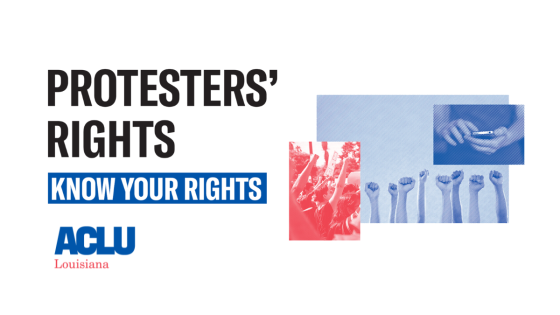On June 20, 2020 the ACLU of Louisiana hosted a Children’s March for Racial Justice. The event included youth performances, a book reading, a march, and a creative exercise facilitated by New Orleans street artist Brandan “BMike” Odums where children and families envisioned a safer world without police violence.
Nearly 60 years after hundreds of children were injured or arrested as part of the Birmingham Children’s Crusade, the goal of the Children’s March was to provide a safe space for young people to learn about the Black Lives Matter Movement; develop the skills to identify and interrupt racism in their schools, neighborhoods, and communities; and make their voices heard about the future they want to build.
The ACLU of Louisiana compiled the following toolkit as a resource for other groups and organizations that want to organize their own event.



